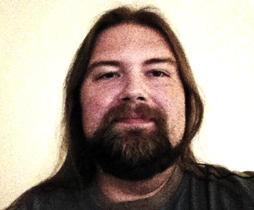Find Stephan @
Official Website
SoundCloud
Facebook
Twitter
Tell us a little about yourself and what you do for a living?
I mainly work as a composer for movies, TV series and documentaries but when time permits, I also work in the field of corporate sound and create sounds for companies like Native Instruments and Camel Audio.
What is your niche or speciality, that makes you stand out from rest of the audio professionals?
I love scoring to picture, because moving pictures really inspire and challenge me. For me it‘s always a magic moment, you never know where a movie will lead you musically. It‘s like discovering new worlds over and over and you never know what comes next, like an adventure. I guess one of my strengths is that I‘m very quick and pedantic in assimilating new styles, which, I would say, is also a must and requirement in the business I‘m working in. Clients just expect you to be flexible in any way.
I also love to incorporate custom sound design elements in my work. That‘s always a great opportunity to get creative with sounds and create your own signature. But of course, not every project provides the room for experiments, either time-wise or concept-wise.
Can you give us a brief summary of the equipment you use regularly?
My main rig is a single PC on which I run Cubase 6.5, Nuendo 5.5 and Wavelab 7, a master keyboard and a bunch of MIDI controllers.
What are your go-to plug-ins and software? (virtual instruments, audio processing etc.)
I don‘t really have go-to plug-ins. It heavily depends on the project which plug-ins/libraries I use. The most important thing is to be prepared for many musical situations (orchestral, ethnic, electronic, jazz,…). A lot of that is covered by Kontakt libraries from ArtVista, Audiobro, Best Service, CineSamples, Chris Hein, Heavyocity, Native Instruments, Orchestral Tools, Peter Siedlaczek, ProjectSAM, Sample Logic, Sample Modeling, Scarbee, Spitfire, etc…
The non-Kontakt stuff I use is from Camel Audio, iZotope, IK Multimedia, Korg, MusicLab, Spectrasonics, Steinberg, u-he, Waldorf, Yellow Toools, XLN Audio, etc…
I gotta add, that I really love Omnisphere. In the past, when searching for sounds, Omnisphere used to be the last plugin I checked just to find out that this specific ethnical sound was there all the time. That‘s why I check it first now.
As for audio processing, I love everything from UAD. It covers a lot of my needs. Additionally I use the onboard plugins from Cubase and stuff from Camel Audio, Line6, Native Instruments, OhmForce and Overloud, etc…
It‘s not really important which libraries/plugins you use. But what is important is, that you know how to handle them and know how to get most out of it.
When do you find you are most creative?
I‘m most creative when I feel inspired and motivated. This does not depend on a certain time of day, but rather on several complex aspects I cannot really describe. That‘s when the ideas are just getting out of control and at the end of composing a track, I‘m always asking myself: how the hell did I do that??? Haha. It‘s one of these magical moments that I love when writing music.
What is your usual process for creating audio content for films?
Of course it always depends a bit on the project, but my usual process is like (the order of the steps can vary):
- talking to the involved people (director, producer, etc…) and getting an idea of their vision
- getting familiar with the footage
- spotting the movie
- finding a musical language
- understanding the structure of the movie and developing a corresponding musical structure
- start composing
Are there any particular secrets to your creativity?
It wouldn‘t be a secret if I‘d tell these, right? :P No, seriously, as far as I know, I don‘t have any secrets. I just do what I think sounds best. It‘s a combination of listening, analyzing, learning, experience, self-criticism and the never ending process of acquiring new skills.
Do you have any audio creation techniques that resulted in something interesting?
There are many! Most of them happen by coincidence when fiddling around with a plugin or when doing something completely absurd, LOL. For example iZotope‘s Iris. It‘s one of the coolest things I have worked with to date. And I‘m not talking about the presets. Iris unfolds its real power when using your own material. You can put samples into it and forge it until something completely new is the result. And the best thing: the whole process is pure fun and not frustrating at all. The downside is: you can really forget the time when trying new things. That‘s why I usually don‘t do it in the middle of a project.
Any specific “lessons learned” on a project that you could share?
Not exactly a lesson but maybe an insight concerning „Writers Block“. It actually is a good thing IMO. In essence it means that you are not satisfied with your results. It‘s a process of evolution. Out of my experience there are two solutions:
a.) go on writing, don‘t give up, forge what you have until you are satisfied. Something rather trivial can sound great if you change it slightly or add the „right“ details to it.
b.) the more common tip might be: take a break, go outside, get new impressions to „clean your ears“.
Any tips, hints or motivational speeches for the readers?
I know, it‘s been said so many times already, but it‘s true! Work hard, never rest on your oars, listen, constantly work on your skills, never give up because sometimes opportunities arise by coincidence and always be your toughest critic.


